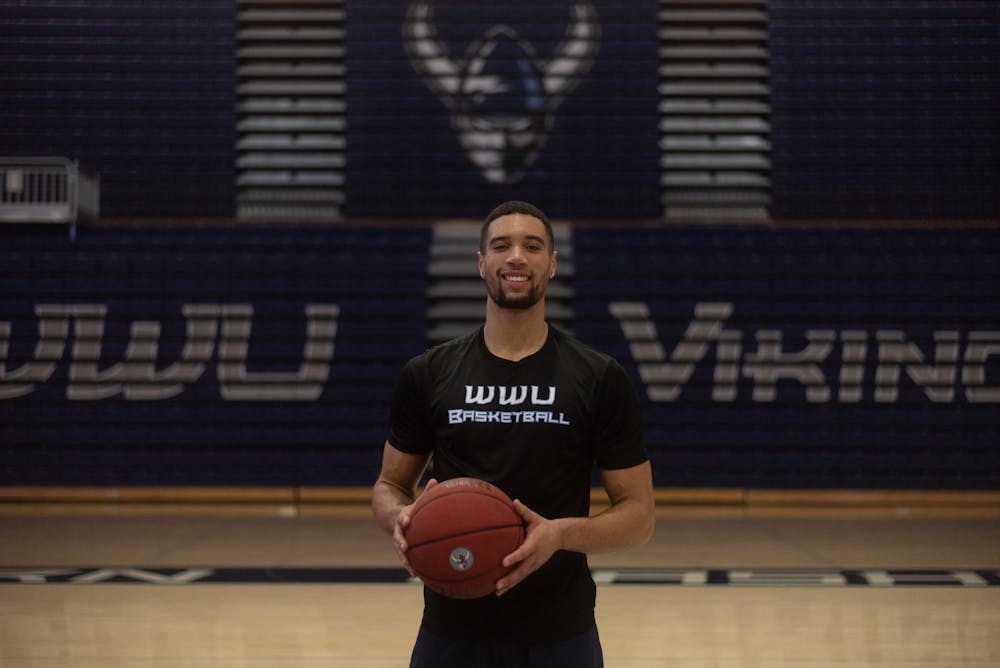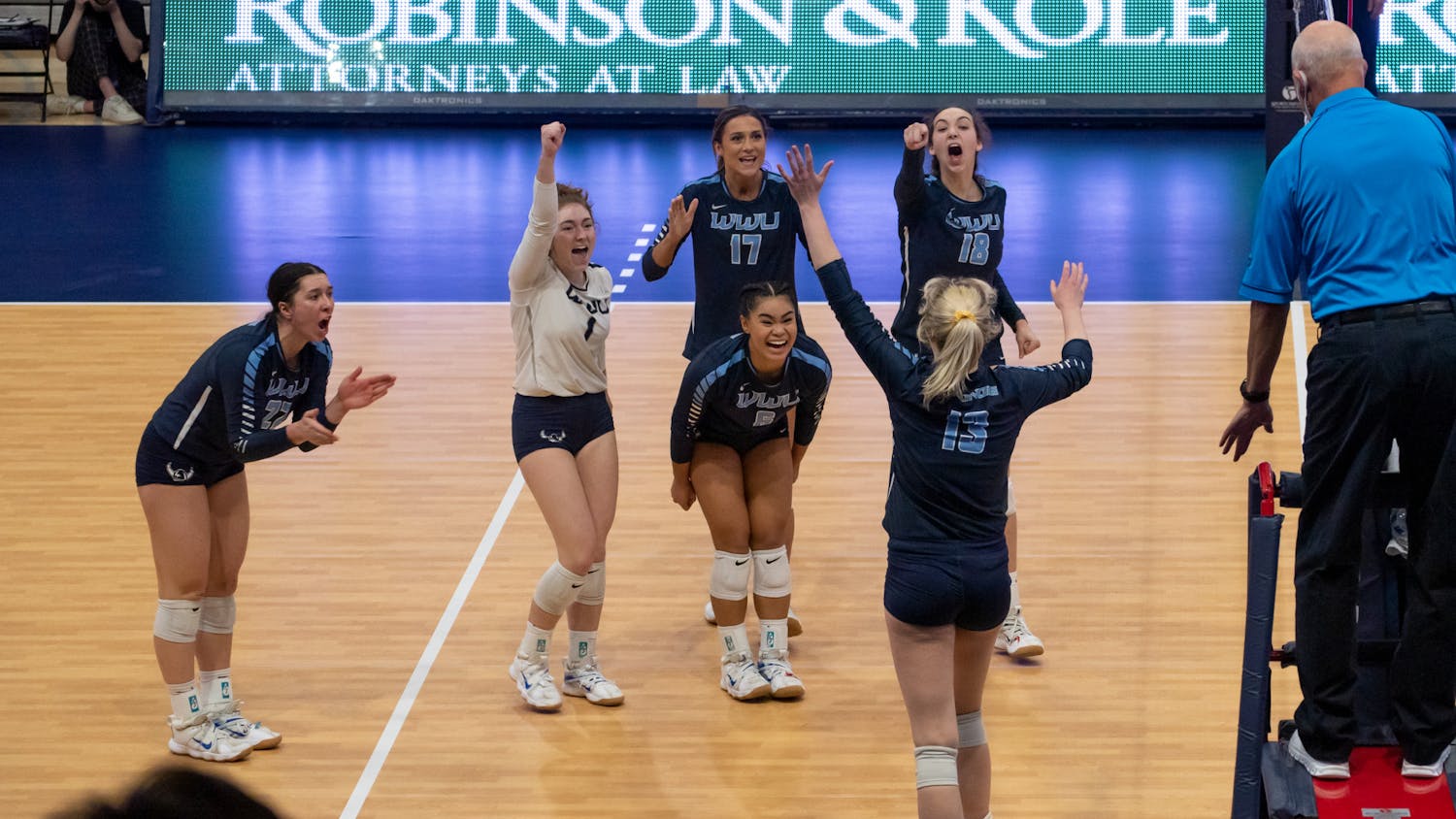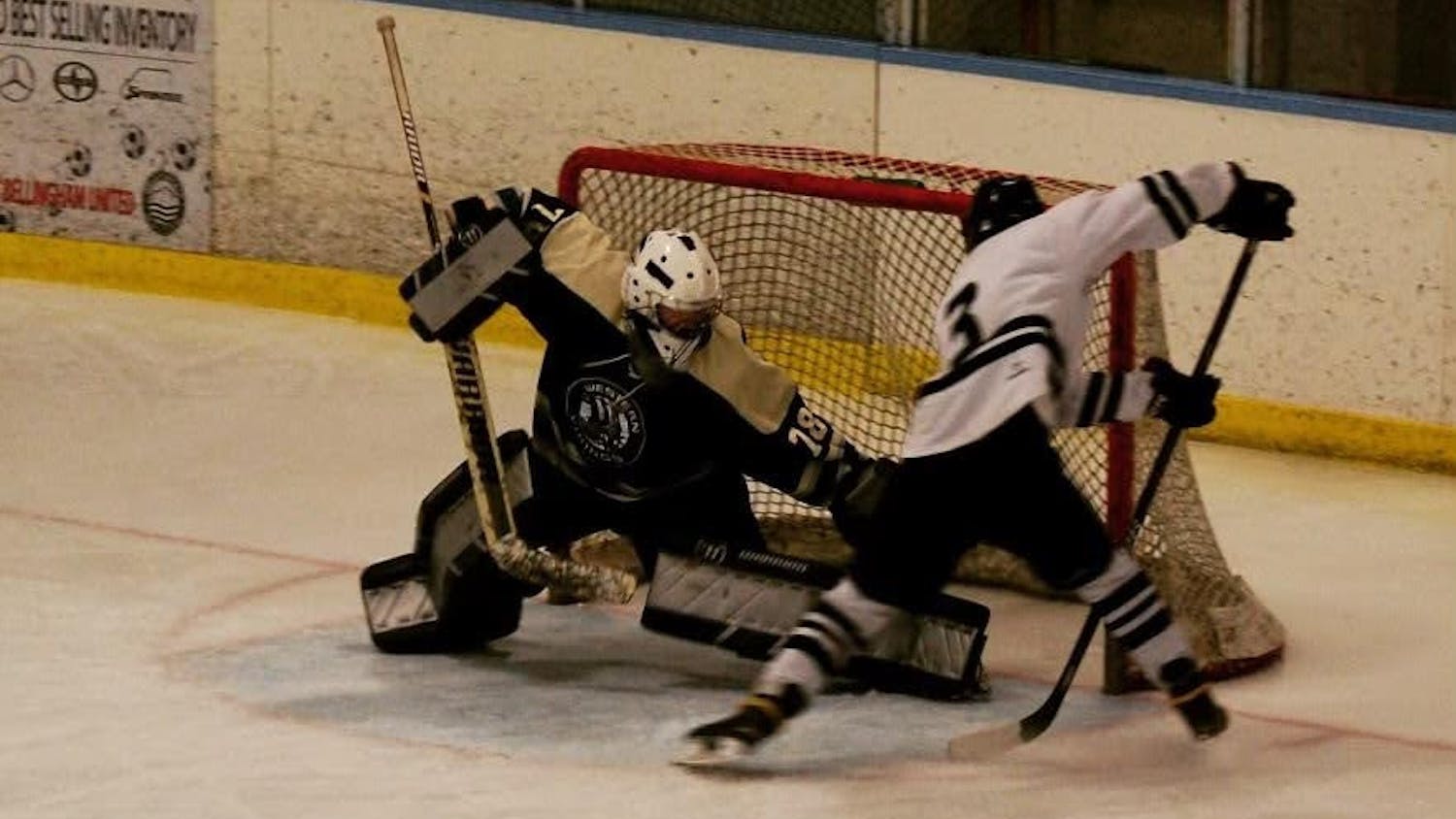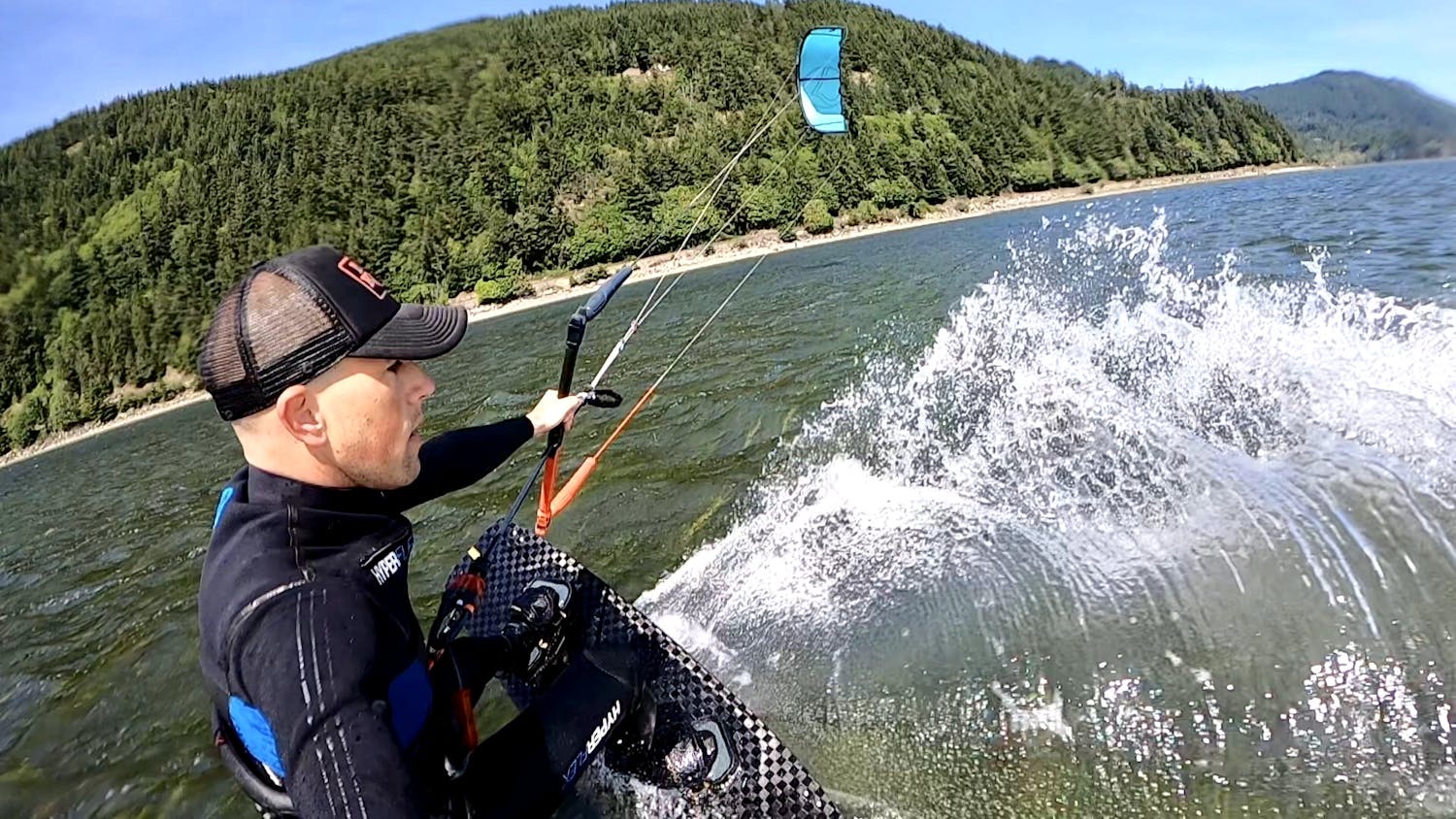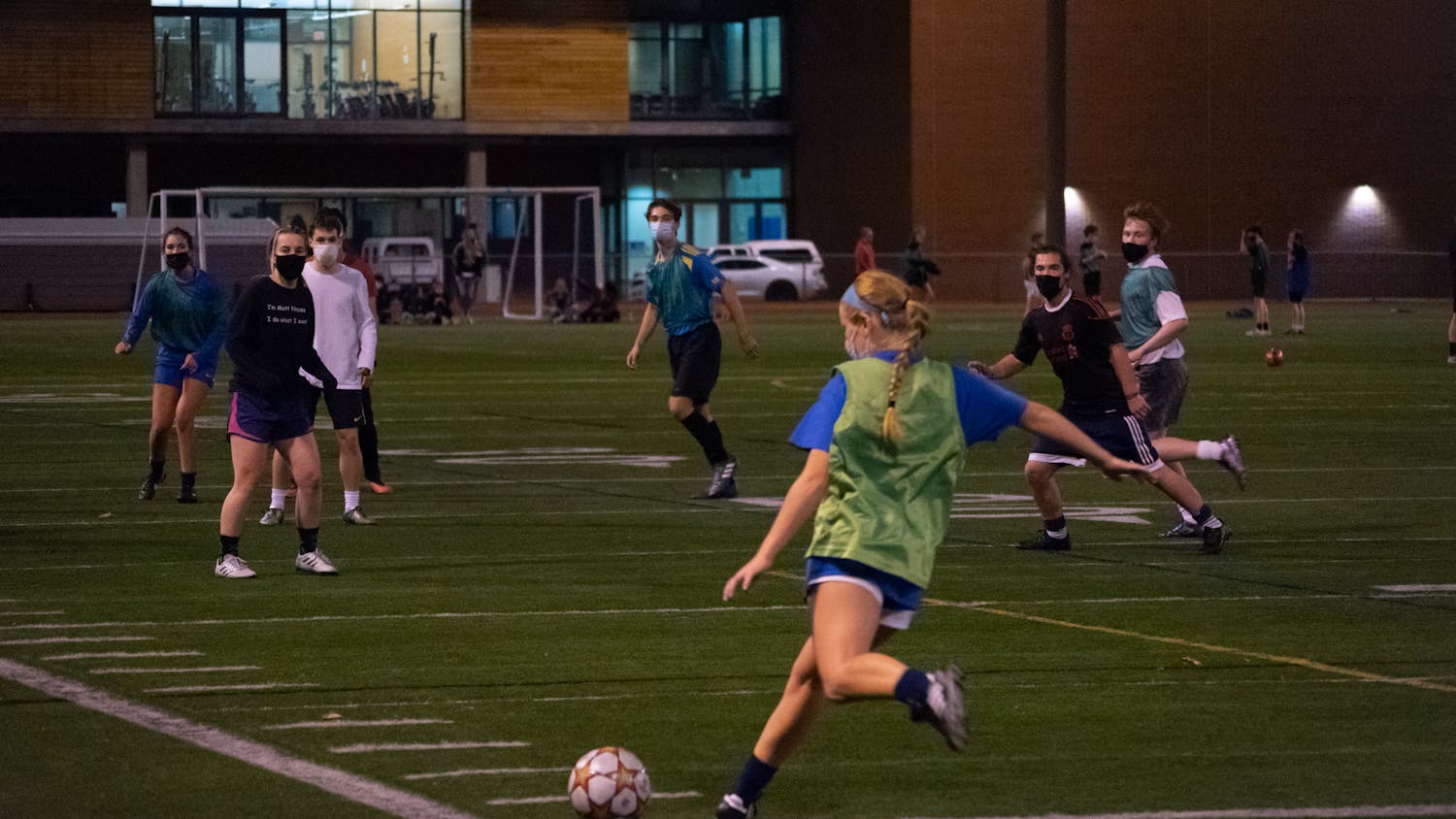Student-athletes do more than just go to practice after attending classes. Western Washington University’s men’s basketball player RJ Secrest has lived the true life of a student-athlete heading into his fifth year at Western.
Secrest begins every day at 9 a.m. by putting in shots at Sam Carver Gymnasium by himself while the facility is still empty.
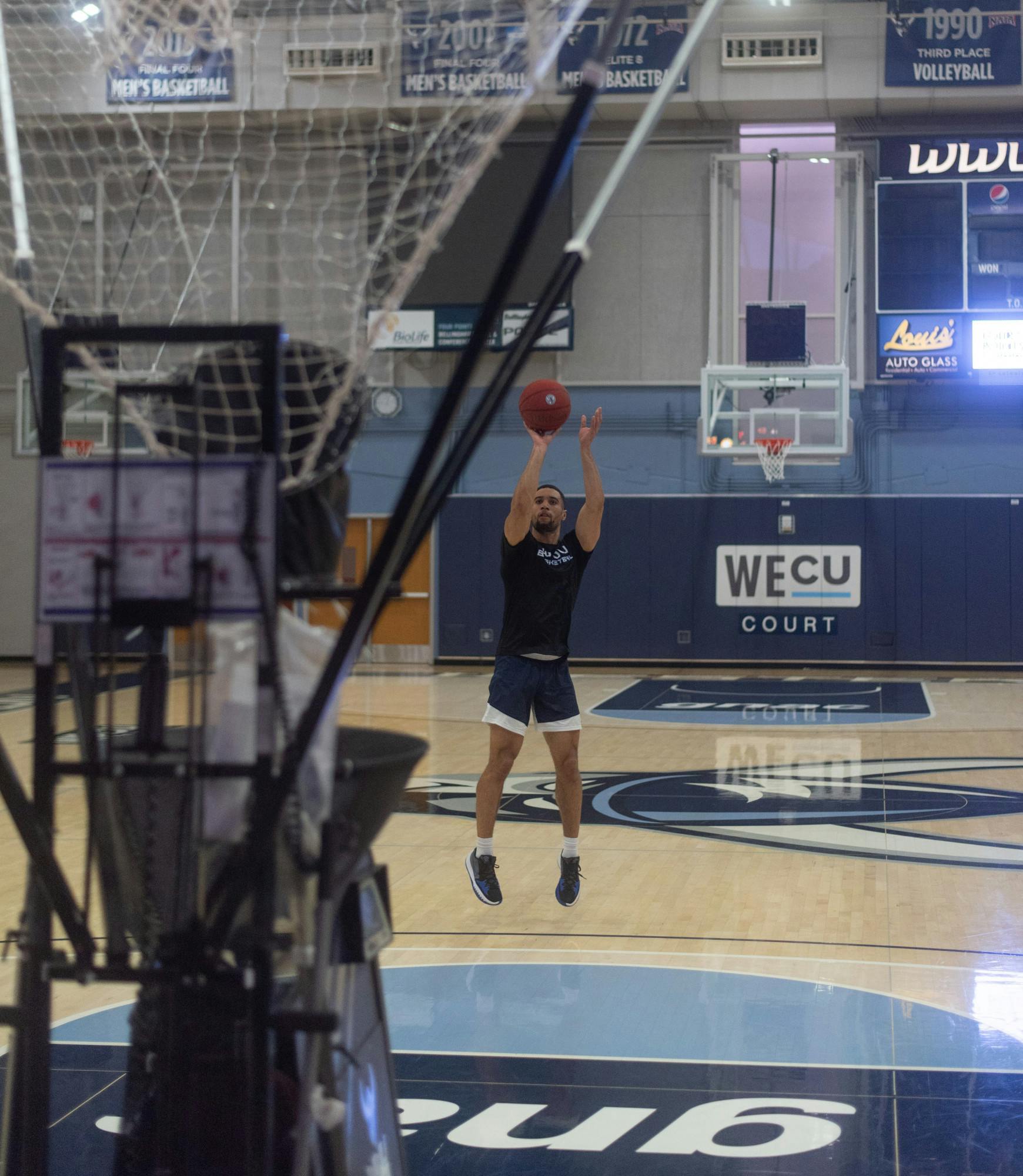
Secrest shoots a basketball during his 9 a.m. workout at Carver Gym on Wednesday, Nov. 3, 2021. // Photo by Finn Wendt
After that, he heads home to make breakfast and prepare for the day.
From there, Secrest walks or drives back to campus and transitions from his life as an athlete to his life as a student. Secrest is double majoring in marketing and finance, a big commitment for a student-athlete to take on.
“Sometimes in group projects, if I’m in their group and I start contributing a lot, that shocks some people; they expect the athlete to be a mooch,” Secrest said. “I feel like I have to take the first step in a lot of senses ... and show people I’m more than an athlete.”
In between classes, he likes to grab lunch at Vendors Row and study in the Viking Union.
At 3 p.m., he transitions back to basketball with a daily team meeting followed by team lifts in the weight room and practice at 4 p.m.
Once practice is over, Secrest heads home to do homework and have dinner. Secrest said it can be difficult to find free time as a student-athlete.
“My free time usually comes Friday through Sunday,” he said.
During the season when the team is traveling for games on the weekend, that time gets cut even shorter.
When he does find some free time, he especially enjoys cooking.
“I got into cooking once I moved out of the dorms; you save so much money, and it's so much healthier,” he said. “The biggest meal I ever cooked at once was for last year's Super Bowl.”
When the day’s done, Secrest gets up and starts his schedule all over again.
“It’s funny because when you actually talk about what we do, it sounds very boring, like very monotonous, and I don’t really notice it until I actually say it out loud,” Secrest said.
Even though Secrest has a lot of different tasks between schoolwork and basketball, it can start feeling repetitive, making it even more difficult to stay motivated.
“There’s definitely days where it’s like you don’t even want to get out of bed,” Secrest said. “You’re like ‘Damn, I got to do it again,’ but you get through it, and it all ends up coming full circle.”
That mental fatigue is something that Secrest said people might not think about.
“The mental health aspect of being a college athlete is a lot more important than people realize,” he said. “The physical stuff is the easy part.”
Secrest said not staying on top of time management and not having a support system to help focus on mental health are some of the main causes he’s seen that lead to student-athletes dropping out or transferring to other schools.
Finding that support can be hard for busy students who are also committed to a sport.
“That's something that I was just thinking about recently because if I'm being honest, if I needed that resource or to recommend [one to] someone, I wouldn't necessarily know where to send them,” Secrest said.
He said resources were mentioned at the beginning of the season, but they’re not consistently talked about.
One easily accessible resource that players do have is their coaches.
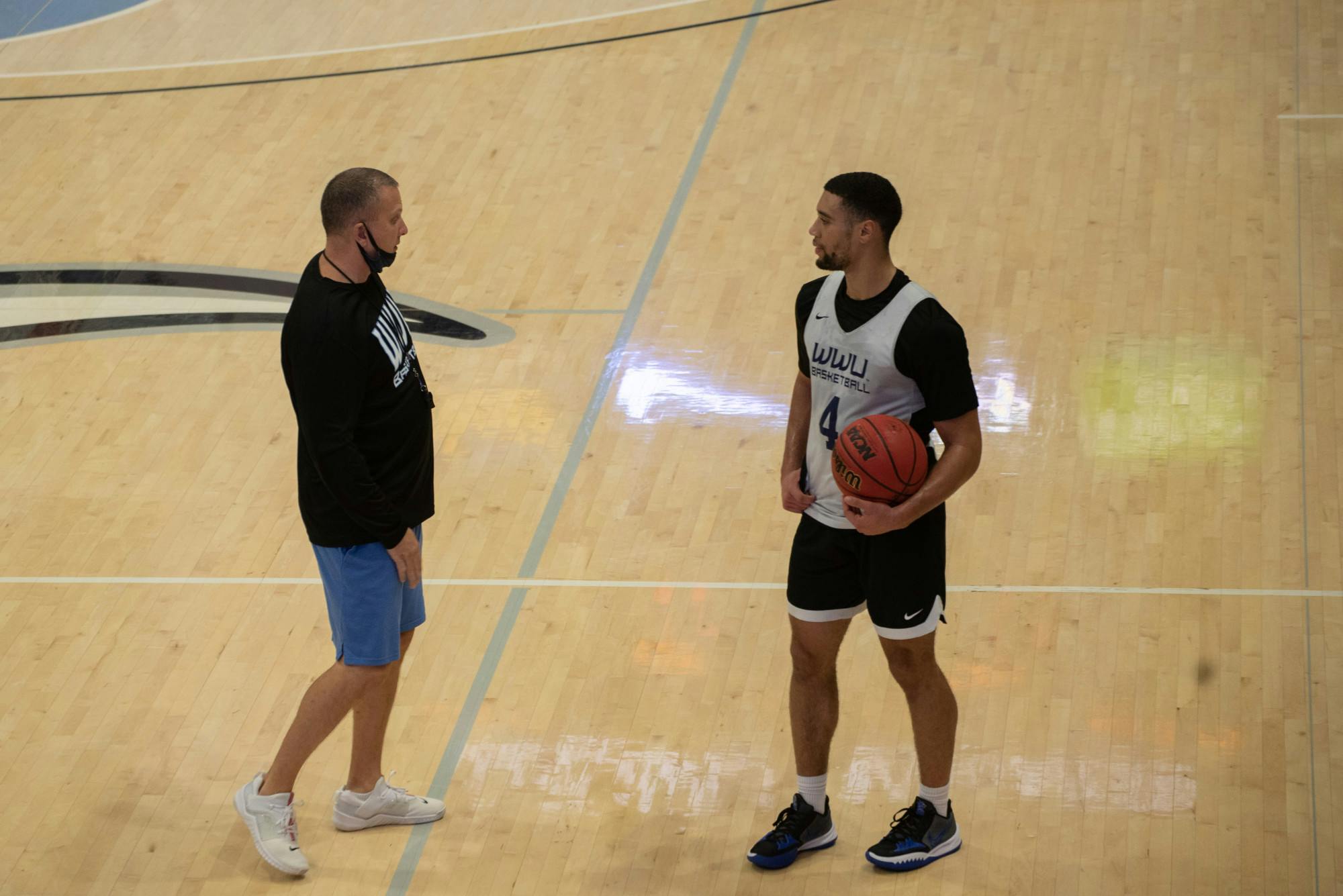
Secrest (right) talks with his head coach Tony Dominguez (left) during practice on Nov. 3, 2021. // Photo by Finn Wendt
Tony Dominguez, the head coach of Western’s men’s basketball team said his goal is to be a mentor as well as a coach for his players.
“You can kind of see their body language and practice where they're at mentally,” Dominguez said. “We're also there for life. We're kind of counselors if they need it.”
In Division II athletics, student-athletes must maintain at least a 2.2 GPA to be eligible to play.
“Younger freshmen, we [coaches] monitor [them] every week to see where they’re at with their grades, make sure they're studying and getting the help they need,” Dominguez said.
Kaleb Smith is a sophomore basketball player at Whatcom Community College and has found a similar support structure through his studies there.
“I give a lot of credit to our coach, Coach [Jerome] Jenkins, for making sure guys are at our study tables,” he said. “[It’s important to have] support not just in your household, but with your coaches, with your teammates want you to do better, not just on the court, but in your school.”
Having teammates that you can rely on makes being a student-athlete a lot easier, Secrest said.
Over the past year with the COVID-19 pandemic, Western’s team has spent a lot of time bonding. Secrest said this year’s team has the most chemistry that he’s seen at Western.
You can catch the men’s basketball team in action against Concordia University Irvine at the Chuck Randall Classic on Nov. 19 at 7:30 p.m. in Carver Gym.
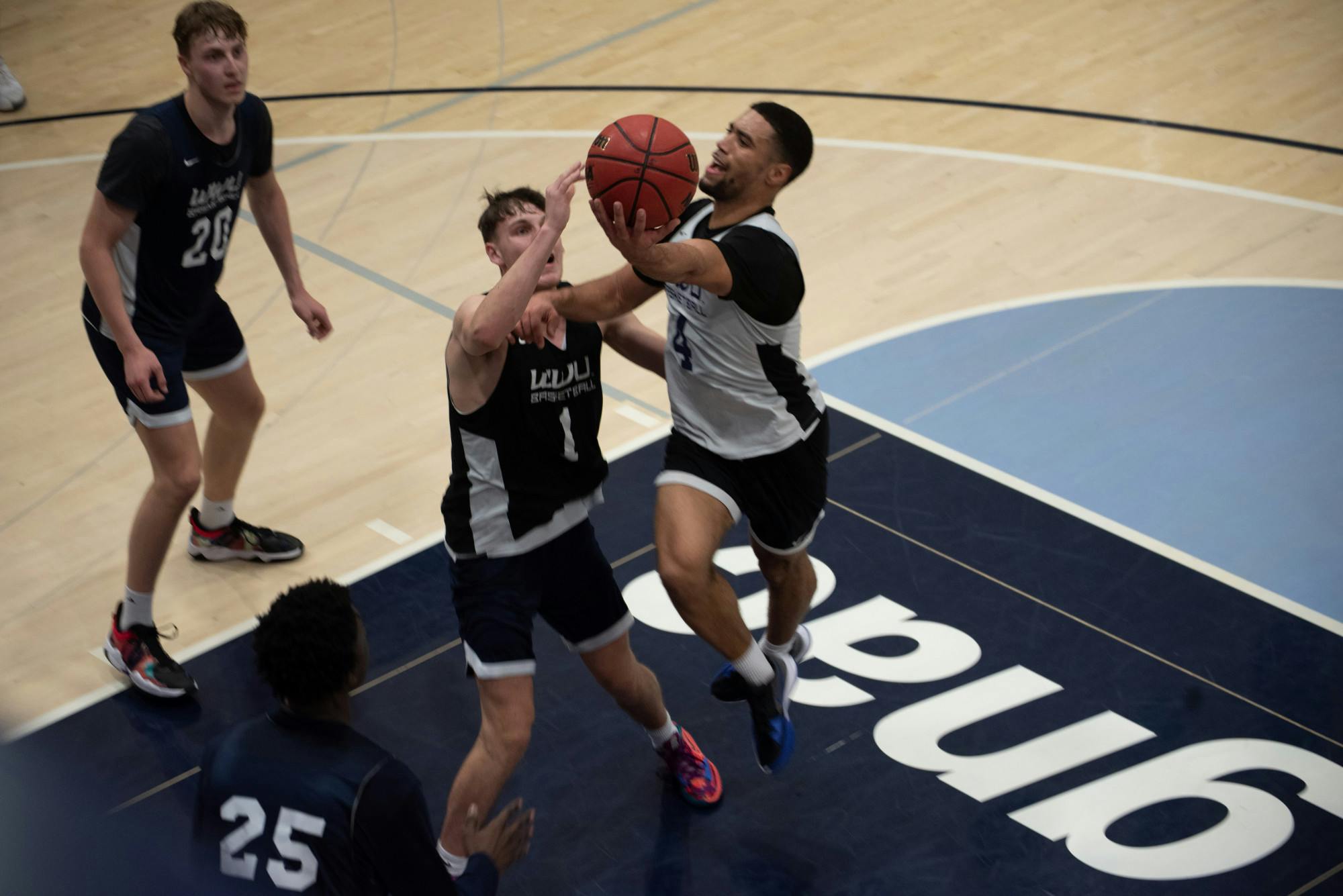
Secrest goes up for a shot during a drill at practice on Nov. 3, 2021. // Photo by Finn Wendt
Finn Wendt (he/him) is a sports and recreation reporter at The Front. He is pursuing a degree in visual journalism with a minor in sociology. Outside of journalism, he enjoys photography, eating and hiking. You can reach him at finn.thefront@gmail.com or finnwendt.com.
Finlay Morrison is a reporter for The Front and a third-year journalism student. He focuses on local sports and WWU athletics.


